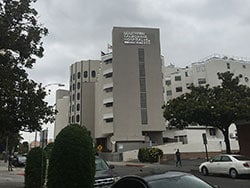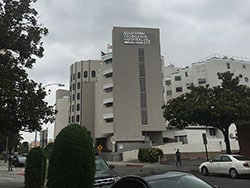A federal appeals judge has rebuffed a Southern California hospital’s second attempt to void a landmark city mandate requiring COVID-19 hazard pay for hospital workers.

The owners of Southern California Hospital at Culver City sued the city in federal district court in 2021, alleging that its hazard pay law violated the National Labor Relations Act and US and California constitutions.
The owners lost that case and appealed, but a 9th Circuit federal appeals judge affirmed the lower court ruling, writing in a January 18 memorandum that Culver City’s mandate was lawful.
The Culver City ordinance covering “on-site hospital workers” mandated a $5 per hour salary increase over a period of 4 months for approximately 1000 nonmanagerial hospital workers across a range of positions, from clinicians to janitors. It has now expired.
A hospital spokesperson said the company has now complied with the ordinance but has not decided whether to file a petition for a rehearing.
“This ruling is a victory for the Culver City hospital workers who have shown up every day during this pandemic, putting themselves and their families at risk to care for patients with COVID-19,” La Rhonda Smith, a speech-language pathologist who works for the hospital, said in a Service Employees International Union (SEIU) press release announcing the court ruling. The ordinance is believed to be the first in the country to require COVID hazard pay for hospital workers. Some California cities had implemented “hero pay” for grocery and retail workers.
“We’re really hoping that other local governments see this and give them confidence that they can also pass these similar types of ordinances for workers without a whole entanglement of legal challenges,” said Renée Saldaña, spokesperson for SEIU-United Healthcare Workers West, which represents some of the hospital’s workers.
The hospital accused Culver City of unfairly singling it out. As the city’s only hospital, it was the only facility touched by the ordinance, which was passed in 2021.
In a written statement, the hospital’s owners called the ordinance “arbitrary and inequitable” and criticized the city’s “exclusion of other essential workers, including firefighters, paramedics, peace officers, transit workers, government employees, and others in Culver City who also played a vital role in serving our community.”
The owners’ complaint failed because the hospital didn’t identify a “similarly situated entity” and show how it was intentionally treated differently, the federal appeals judge wrote in the January 18 ruling. The city ordinance was deemed a minimum labor standard that didn’t intrude on the bargaining process between the hospital and its union.
The fact that Southern California Hospital at Culver City is “the only hospital that meets the Ordinance’s generally applicable definition does not change this conclusion,” the judge wrote.
Hospital leaders stressed that they voluntarily provided pandemic-related financial support and benefits to employees before the city’s hazard pay mandate. That support included hourly bonuses and a one-time bonus for staff who were directly involved in caring for COVID-19 patients, as well as child care reimbursement, free meals for hospital staff, and free hotel stays for employees who needed overnight lodging during the pandemic.
“We believe our frontline health providers are heroes,” the hospital said, “and deserving of our support.”
Saldaña said she hopes hospital leaders prove they mean that in “real tangible ways of caring and fairly compensating these workers” going forward.
“It’s very demoralizing for a lot of the workers at that hospital to continually see these challenges and that their employer does not want to pay them for their hazardous work during the worst of the pandemic,” she said.
The Los Angeles County hospital’s failed fight over COVID hazard pay is the latest blow to its troubled reputation. It is operated by private equity-backed Prospect Medical, which has been criticized for cost cutting that endangered patients. The hospital received a “D” (below average) safety rating last fall from the Leapfrog Group, a hospital quality watchdog group founded by large employers and health insurance purchasers.
For more news, follow Medscape on Facebook, Twitter, Instagram, and YouTube.
Source: Read Full Article
